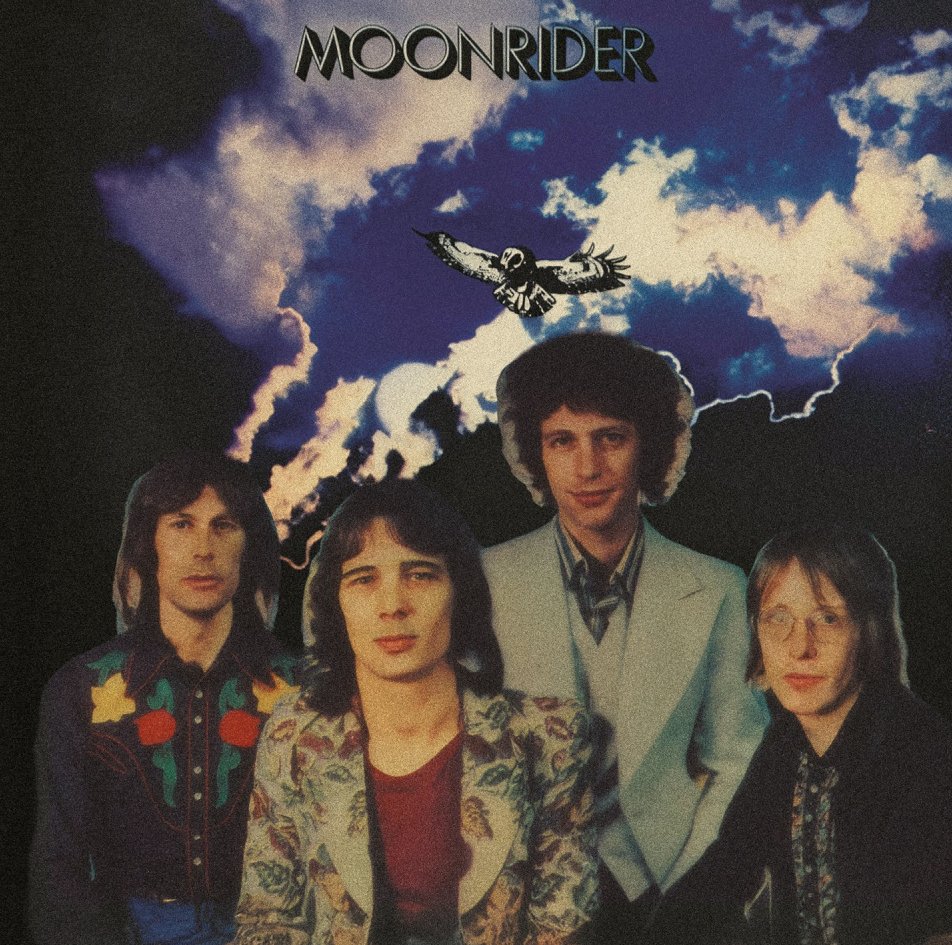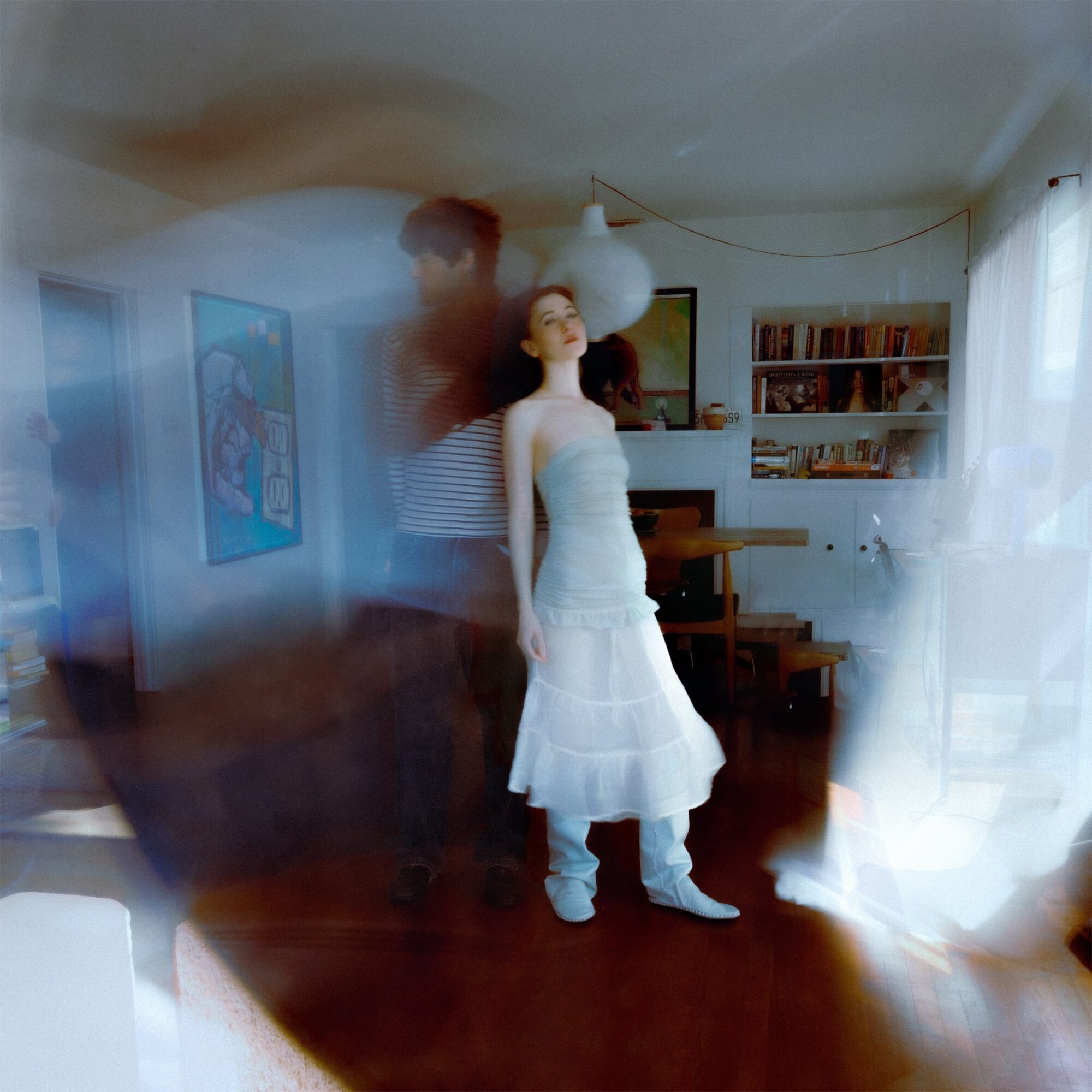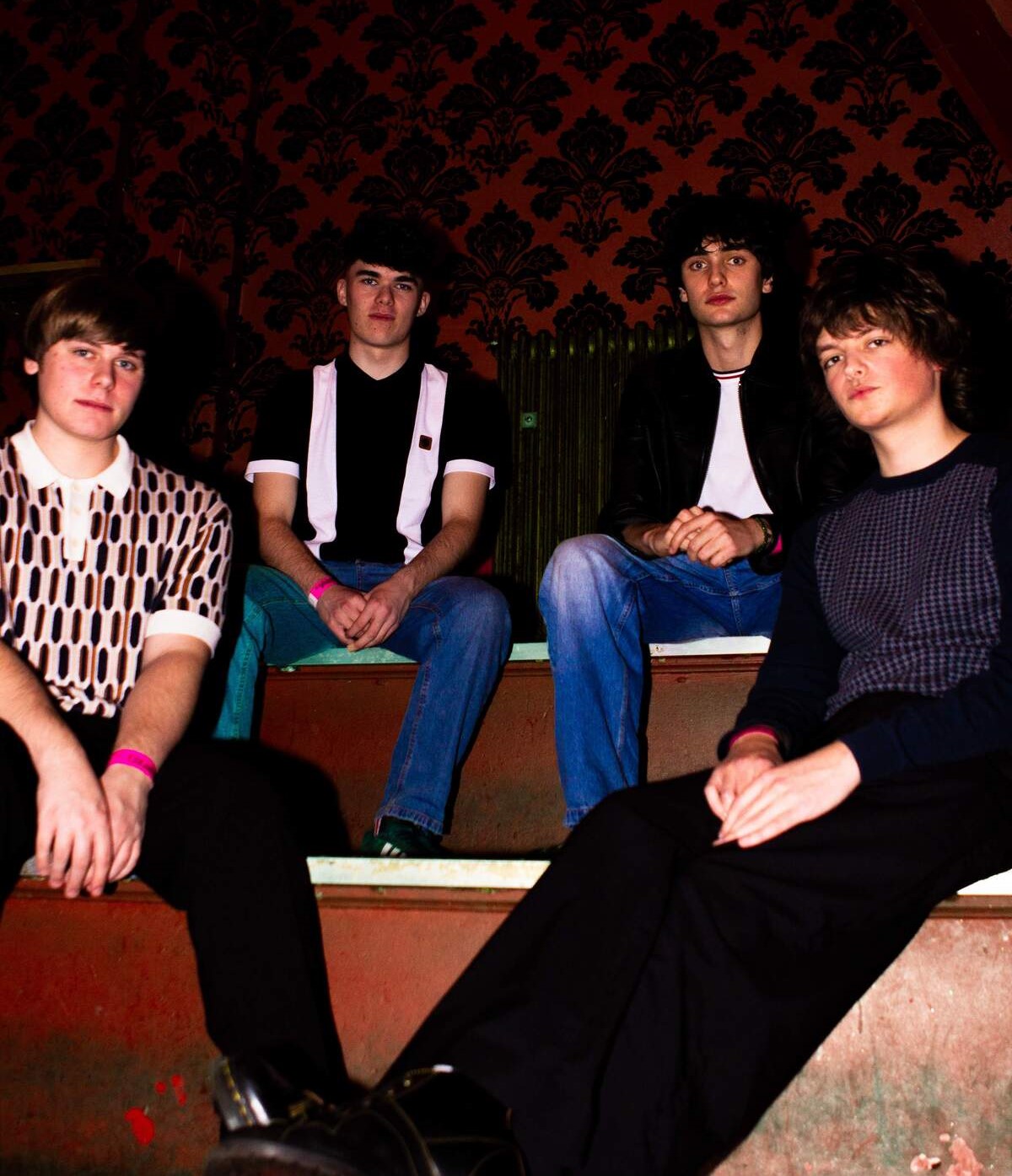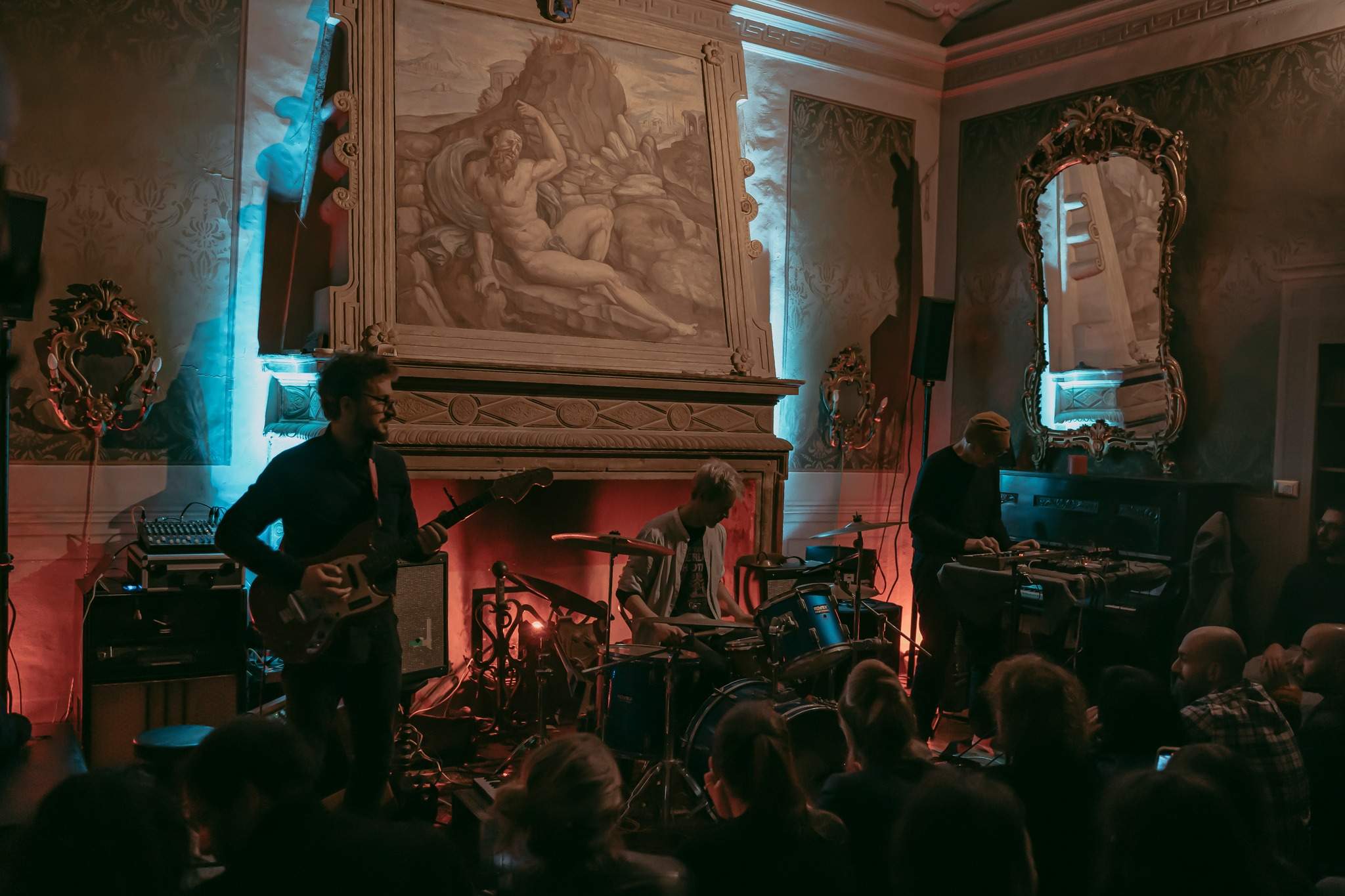Keith West’s Moonrider Album Reissued by Think Like A Key
The 1970s album by Moonrider and the solo LP by John Weider are set to be re‑issued on CD by Think Like A Key Music on 12 December 2025.
Keith West is a British rock singer, songwriter, and producer, born in Essex, whose musical career dates back to the 1960s. He first gained prominence as the lead vocalist for Tomorrow, a pioneering psych-rock band that also featured guitarist Steve Howe. West is also famous for his 1967 solo hit, ‘Excerpt from a Teenage Opera’ (‘Grocer Jack’), which peaked at No. 2 on the UK Singles Chart. With deep roots in the mod and psychedelic scenes, and his later involvement with Moonrider, West remains a defining figure in British rock history.
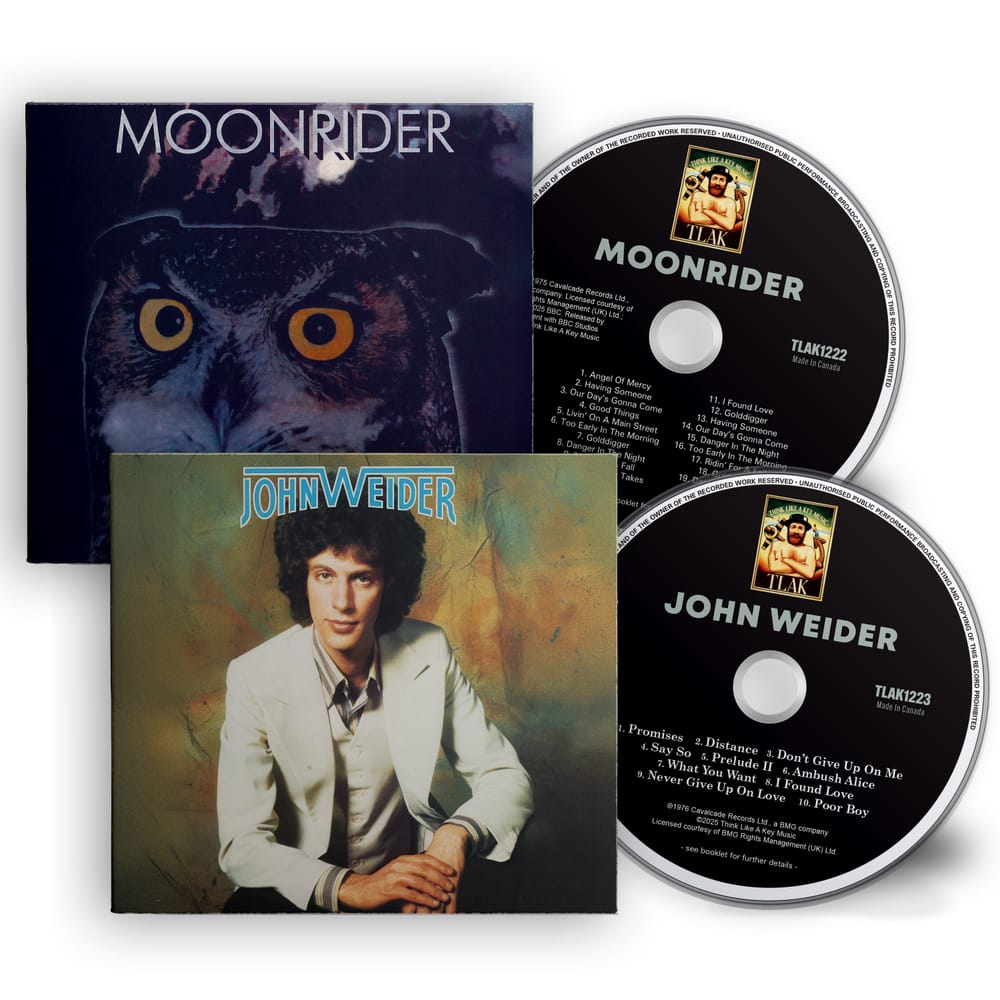
The Moonrider album will appear in a remastered and expanded edition, including previously unreleased BBC recordings. John Weider’s solo record receives its first ever CD re‑issue, newly remastered from the original master tapes.
Please enjoy exclusive performance footage of Moonrider on The Old Grey Whistle Test, featuring Keith West on lead vocals and guitars (formerly of Tomorrow), John Weider on lead and acoustic guitar and vocals (formerly of The Animals, Family, and others), Bruce Thomas on bass (later of Elvis Costello & The Attractions), and Brian ‘Chico’ Greenwood on drums (formerly of Trifle and others).
While some band stories span decades, others flash into brilliance and dissolve when the supporting current suddenly changes. Moonrider belongs to the latter category, a group formed by seasoned musicians who believed that good songs, played well, would always find their place. As Keith West recalls, it was not fate that unseated the band but the crumbling foundations beneath them—a record label vanishing almost overnight and taking careers with it. Yet for those brief years in the mid‑seventies, Moonrider worked, played, toured, recorded, and lived like a real band, and their legacy retains a charm that time has not dulled.
The story begins with a friendship. Keith first met guitarist and multi‑instrumentalist John Weider on The Simon Dee television show in the late 1960s. He explains:
“I met John at a TV show in the late sixties called The Simon Dee Show. He was with the Animals at the time, and I was performing Teenage Opera. We all got caught smoking a joint and were scolded like schoolchildren by Simon and his then manager Bunny Lewis.”
Both were young, ambitious, and politely chastised. Years later, as West prepared to record new material, he called on Weider to contribute multiple instruments:
“We kept in touch, and when I was about to record some new songs, I contacted him to play various instruments, guitar, violin, mandolin, and so on, on the sessions.”
Their musical temperaments matched immediately. West elaborates:
“We always got on very well as far as musical taste goes.”
The song that convinced Anchor Records to sign the pair emerged from this collaboration:
“The song that convinced the team at Anchor to sign us was ‘Our Day’s Gonna Come,’ which we wrote at my house.”
With the record deal in hand, the rhythm section soon followed. Chico Greenwood joined on drums, already known to Weider, and Bruce Thomas joined via mutual friends at Lots Road, where Steve Howe of Tomorrow also lived. West recalls:
“John already knew Chico, and I was friends with Bruce, who lived at Lots Road where Steve Howe was also staying. They worked out well together, as both were very good players, especially Bruce, whose bass lines were particularly musical. I even wrote a bluesy song called ‘Living on a Main Street’ for him to showcase his talent.”
The chemistry was immediate. There was experience, humour, and the unmistakable feeling of potential. Before Thomas joined, another familiar name came through rehearsals:
“Before we decided on Bruce Thomas at rehearsals, we turned down Cliff Williams, AC/DC.”
Moonrider entered Olympic Studios, a space imbued with history. West explains:
“The atmosphere at Olympic was great, although Gary Katz, who was supposed to be the producer, suddenly got very busy. Rather than wait, Anchor asked me to take over, which I was not keen on initially.”
Keith recalls: “Recording went well, if rather predictable, but we all pitched in to complete the album.”
However, West admits to one lingering regret:
“As producer, I had to be in the control room most of the time, so John did most of the guitar parts, which I now regret. I have a different feel than him. It’s more loose and I think it would have given the tracks more character.”
Bassist Bruce Thomas later quipped:
“Born to be Mild, Bruce quoted.”
It was a humorous nod to the polished sound of the album.
Moonrider’s live performances were captured for the BBC, including In Concert and The Old Grey Whistle Test. West recalls:
“The Old Grey Whistle Test was interesting. We were very relaxed playing live, although John did get stage fright sometimes, but he was okay on that session.”
A moment of comic tension arose when Bruce Thomas challenged the producer about the studio’s expectations:
“Bruce upset the producer when he enquired, ‘Do we have to wear the OGT badge?’ Not good, as the producer replied, ‘It should be an honour.'”
Touring was a blur, as West admits:
“We were stoned most of the time, so it is a bit of a blur.”
Supporting John Mayall, the band played to half-empty houses:
“I do remember playing to half-empty gigs on the John Mayall tour, which was sad. He was so strict with the members of his band regarding drugs and alcohol that they used to hang out with us in our dressing rooms. We never had contact with Mr Mayall either, which was strange.”
Other shows were more joyous, including appearances with Chaka Khan:
“Chaka Khan was a lot of fun and very friendly. Her band were off the scale live.”
College dates and smaller gigs followed, each carrying the potential for everything to click perfectly:
“We used to get together sometimes and air our views about the band’s future.”
Even as Moonrider were finding their footing, the foundations beneath them began to crumble. Keith recalls the sudden end of Anchor Records with candour:
“I was busy writing new songs when I got a call saying Anchor Records had gone bust. They were funded by ABC or MCA, I think, and they just pulled the plug overnight due to lack of hits. Apart from Ace with ‘How Long,’ the rest of the roster, including us, were not delivering.”
Before the collapse, the label attempted a last-ditch effort to generate radio play with a non-album single:
“To try and save the situation, we recorded John’s bland pop song ‘I Found Love,’ which I did not want to sing. I caved in, and it did not sell anyway, thankfully.”
Pete Gage was brought in to produce the session:
“As a desperate attempt to get some airplay, they hired Pete Gage as producer. I struggled through that session as I never liked the song but felt a loyalty to Bruce and Chico to complete it. That was the final nail in the coffin for me.”
West walked away from the label:
“I was done with Anchor and refused to record any new tracks. John decided to keep trying, and I believe he did one more album.”
Moonrider’s story is intertwined with John Weider, whose talent and temperament defined much of the band’s character. Keith reflects:
“John’s temperament was unusual. He suffered from nerves and stage fright sometimes, but in the studio or writing songs he was very relaxed. He could play anything with strings on and had a genuine talent for melody and jamming.”
Though he had the skills to shine, Weider was not a natural frontman:
“He did not want to be a frontman and many times he thanked me for believing in him as a lead guitarist.”
Together, they formed a productive songwriting partnership:
“We always worked well together. I did not keep in touch after I left Anchor as I thought he had moved back to America.”
West clarifies that none of John’s other songs outside the Moonrider LP were ever tried by the band:
“I do not recall us ever trying out any of John’s songs that are not included on the Moonrider LP.”
With Moonrider finished, John Weider embarked on a solo record. Keith admits he did not hear it and had little interest:
“No, I never heard John’s solo album. I wanted nothing to do with Anchor Records as it was crumbling before my eyes. The other acts that were signed were also unhappy about the lack of promotion and involvement from the A&R side, which was very poor, and eventually led to their demise.”
He believes the solo album may have been a contractual obligation rather than a fresh creative statement:
“Moonrider was John’s idea and he led the way regarding the general song choices, so he may have been obliged contractually, I guess. I have no idea if he took it seriously. He never shared what he hoped the album would achieve. It may have been contractual, but John always tried to make something of the work he did.”
Despite the collapse of Anchor Records and the band’s short lifespan, there were meaningful successes:
“John convinced me that if we formed a band we could break America. In hindsight, he was wrong. On the positive side, John and I managed to sign to a management company, seal the deal with Anchor Records, receive a very lucrative advance, and also have a regular income for the whole band plus all the equipment we required to play live. We gave it a shot, had some fun on the way, and as far as bands go, we got on very well all the time we were together, and that counts for something in my book.”
Looking back, Keith is candid about the band’s sound and where it was heading:
“The Moonrider soft rock sound with a country-tinged element was being slowly sidelined and would not have lasted very long. We had no plans for a second Moonrider album, and Bruce and myself would not have been interested. I was done with Anchor and refused to record any new tracks. John decided to keep trying, and I he did one more album.”
Klemen Breznikar
Think Like A Key Music Official Website / Facebook / X / Instagram / Bandcamp / YouTube

